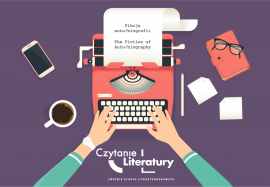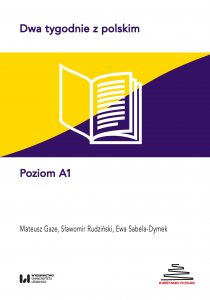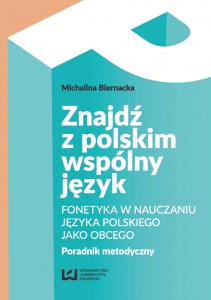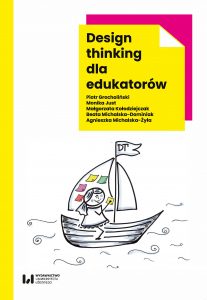Czytanie Literatury. Łódzkie Studia Literaturoznawcze | #CALLFORPAPERS
Opublikowano: 27 July 2023

Call for Papers: Fikcja auto/biografii. Nowe perspektywy na dwuznaczny status tekstów life writing i ich odczytań
Fikcja auto/biografii. Nowe perspektywy na dwuznaczny status tekstów life writing i ich odczytań
Pisarstwo autobiograficzne jest nacechowane dwuznacznością. Podwójny charakter autobiograficznego pisania (i czytania) polega na jednoczesnej faktualizacji życia i jego fikcjonalizacji poprzez narrację. Jak ujmuje to Judith Butler w Giving an Account of Oneself (2005), o własnym początku można opowiadać na wiele różnych sposobów, tak że potencjalnie każda genealogia może stać się narracją, choć równocześnie żadna z nich nigdy nie jest tą jedyną i prawdziwą (Butler 2005, 10). W gruncie praktyk narracyjnych prawie każde życie do pewnego stopnia przekształca się w fikcję, w związku z czym zamiast o prawdzie autobiograficznej można mówić jedynie o referencyjności (Tippner/Laferl 2016, 10f). Referencyjność jest zawsze postrzegana przez pryzmat faktualności, pisarstwo autobiograficzne niejako z definicji sytuuje się więc pomiędzy doświadczaniem indywidulanym a zbiorowym. Zależność ta dotyczy również lektury tekstów autobiograficznych. W szczególności obietnica referencyjności zawarta w „paratektstach” (Gérard Genette) kształtuje praktyki pisania i czytania tekstów autobiograficznych. Z jednej strony tekst przekształca życie danej osoby w historię, z drugiej strony autobiografie są zawsze tekstami kulturowymi, oferującymi możliwość „allo-identyfikacji” (Nancy Miller). Teksty kulturowe tworzą „biografie idealne” (Michail Bachtin), mające funkcje dydaktyczne i pomagające czytelniczkom i czytelnikowi zrozumieć złożoność życia i historii, dzięki możliwości identyfikacji (Tippner/Laferl 2016, 13).
W kolejnym numerze „Czytania Literatury” chcemy skupić się na wieloznaczności pisarstwa auto/biograficznego jako gatunku w kontekście dyskursów społecznych i literackich, jak również podjąć próbę opisania konfliktu pomiędzy praktyką faktualizacji literatury i fikcjonalizowania życia. Podstawą obserwacji czynimy szeroko rozumianą kulturę współczesną. Choć wieloznaczność autobiografii nie jest niczym nowym, konieczna wydaje się nam aktualizacja znanej dyskusji wywołanej rzekomą „śmiercią autora” (Roland Barthes) i jego „zmartwychwstaniem” w kontekście postmodernistycznych studiów z zakresu socjologii i gender studies. W centrum naszej uwagi znajdują się tym samym nowe podejścia do gatunku autobiografii i jego transgresje, rzucające wyzwanie dyskursowi autobiografii i wzbogacające go o krytyczne perspektywy.
1. Maskowanie paktów w fikcjach i tekstach faktualnych
Dyskursy o referencyjności życia zostały ostatnio zakwestionowane w kontekście oskarżeń o przestępstwa seksualne, skierowanych pod adresem niemieckiego wokalisty zespołu Rammstein. Główny zarzut dotyczył systematycznego odurzania i gwałcenia przychodzących na koncerty zespołu fanek. Fikcjonalny charakter tworzonej przez wokalistę liryki objawił się tym samym jako zwodniczy: pisanie i śpiewanie o gwałtach okazało się niczym innym jak zapisem rzeczywistych czynów artysty. Jako że pakt fikcjonalny może okazać się strategią transgresji, zasadne wydaje się pytanie o to, gdzie przebiega granica wolności tekstów fikcjonalnych. Inny (mniej tragiczny) przykład maskowania paktu miał miejsce w 2016 roku, w związku z ujawnieniem tożsamość włoskiej autorki ukrywającej się pod pseudonimem Elena Ferrante. Elena Ferrante to w rzeczywistości autorka i tłumaczka Anita Raja. Podczas gdy Ferrante/Raja twierdziła, zgodnie z tradycją krytycznych koncepcji autorstwa, że tekst nie potrzebuje autora, opinia publiczna wręcz przeciwnie nie była gotowa do rezygnacji z tej instancji i akceptacji pseudonimu (Franzen 2023). W czasach kultury celebrytów i ekonomicznego wykorzystywania kapitału nazwiska, fikcyjny charakter utworów Ferrante wydawał się niewystarczający do ochrony przed autobiograficznymi odczytaniami, których sama autorka starała się uniknąć (Franzen 2023). W przeciwieństwie do naukowych teorii, czytelnicy nieakademiccy bardzo często ignorują autonomię sztuki: kiedy możliwa jest lektura faktograficzna lub autobiograficzna, wybierają tę możliwość.
2. Pisanie auto/biografii jako tekstów kulturowych/ideologicznych
Drugi obszar zainteresowania wynika z zaprezentowanych wyżej założeń. Jeśli pisanie auto/biografii może oznaczać opisywanie życia w celu tworzenia narracji wykraczającej poza pojedynczą biografię, przedmiotem zainteresowania staje się motywacja tego typu wyborów. Jaką kulturę powinny reprezentować „biografie modelowe”? Czyjej kulturze powinna służyć „allo-identyfikacja”, zwłaszcza w erze migracji, globalizacji i tożsamości transnarodowych? Czy i w jakim stopniu pisarstwo autobiograficzne dostosowuje się do wyzwań rzeczywistości postnarodowej?
W kontekście ideologicznej i politycznej inkorporacji autobiografii punkt ciężkości spoczywa na literaturze. W przypadku Marii Komornickiej/Piotra Odmieńca Własta (1876–1949), jednego z najbardziej znaczących transgenderowych autorów polskiego dyskursu, dyskusja o niezwykłej biografii wpływa znacząco na badanie twórczości literackiej i determinuje inne dyskursy, w tym także te akademickie. Pytanie o to, jak należałoby traktować ideologiczne (w tym także te emancypacyjne) motywacje pisarstwa autobiograficznego, jego lektury oraz ich ideowe oddziaływanie, staje się istotnym problemem badawczym.
3. Nowe formy life writing
W kontekście nowych możliwości auto/prezentacji w mediach, jakie oferuje kultura współczesna, ważną rolę odgrywają również nowe formy opisywania siebie. Life writing poszerza się o zagadnienia takie jak formy autobiografii kolaboratywnych i „heterobiografie” (Philippe Lejeune), jak również nowe strategie prezentacji auto/wizerunków w mediach społecznościowych. Podczas gdy kolaboratynwe formy life writing prowadzą do hybrydyzacji gatunku autobiografii i jednocześnie go redefiniują, nowe kanały medialne tworzą nowe formy life writing, np. krótkie filmy na Instagramie lub TikTok czy blogi online. Wszystkie te formy wymagają rewizji pojęć takich jak prawda auto/biograficzna, autentyczność czy autorstwo, a także ponownego przemyślenia relacji między kategorią autobiografii i kategoriami performatywności. Szczególnie interesująca wydaje się tu zdolność do ciągłego przepisywania i ulepszania własnego wizerunku, nie rzadko pojawiająca się w odpowiedzi na oczekiwania odbiorców. Występująca w erze cyfrowej różnorodność form life writing wymaga interdyscyplinarnych badań akademickich; problemy związane z narracją life writing są uzupełniane o zjawiska nietekstualne.
Chcemy, aby w planowanym numerze tematycznym „Czytania Literatury” znalazły się artykuły dotyczące pytań o teorię i metodologię life writing, koncentrujące się na opisanych powyżej zagadnieniach i problemach. Przykładowe tematy mogą dotyczyć następujących kwestii:
- Pseudonim w pisarstwie autobiograficznym;
- Zamaskowane pakty fikcjonalne i autobiograficzne w literaturze;
- Ambiwalencja wolności sztuki w erze cyfrowej i kulturze unieważniania;
- Przypadki autorek i autorów, których biografie uderzająco zdominowały odbiór tekstów;
- Zjawisko poprawiania biografii znanych osób przez ich biografów;
- Autobiografie w kontekście cultural imprint i kultury celebrytów.
Na zgłoszenia artykułów wraz z krótkim abstraktem czekamy do 31 grudnia 2023, na gotowe teksty – w języku polskim lub angielskim – do 31 marca 2024.
Wszystkie zgłoszenia prosimy kierować na jeden z poniższych adresów:
iris_tabea.bauer@uni-leipzig.de
Call for Papers: The Fiction of Auto/biography. New Perspectives on the Ambiguity of Life Writing/Reading
The Fiction of Auto/biography. New Perspectives on the Ambiguity of Life Writing/Reading
Auto/biography is determined by its ambiguity. The double character of auto/biographical writing (and reading) lays in the concurrence of factualizing life and simultaneously fictionalizing it through narration. As Judith Butler puts it in Giving an Account of Oneself (2005), the origin of oneself can be told as many different stories, so that every genealogy is a possible narration, but none of those can be assumed to be the only true one. (Butler 2005, 10) Through narration every writing of oneself becomes to a certain degree fictionalized and that’s way there is no autobiographical truth, but referentiality. (Tippner/Laferl 2016, 10f) Auto/biographical writing is in particular and by definition situated in between the individual and the collective because the referentiality is focused through the factual pact. This referentiality concerns not only writing but also reading. The particular promise of referentiality in the »paratext« (Gérard Genette) shapes writing and reading of auto/biographic texts. On the one hand the text produces the life of a person as history and on the other hand auto/biographies are cultural texts, which produce the offer of »Allo-Identification« (Nancy Miller). As didactic means they produce »ideal biographies« (Michail Bachtin) which intend to help the reader to understand the complexity of life and history through identification. (Tippner/Laferl 2016, 13)
With this number of Czytanie literatury we want to focus the ambiguity of the genre in the context of social discourse and literature, describe the conflict of factualizing literature and fictionalizing life on the basis of contemporary phenomena. Although the ambiguity of auto/biographies is nothing new, we seek an update of the well-known discussion related to the alleged »death of the author« (Roland Barthes) and its rebirth mainly through postmodern studies in the field of sociology and gender studies. With this number we want to focus new approaches and transgressions of the genre, which challenge the discourse of auto/biography and enrich it with critical perspectives.
1. Disguised fictional & factual pacts
The discourse of the referentiality of (life) writing has been challenged lately e.g. by the accusation of the singer of the band Rammstein of raping women. It was revealed that he systematically drugged female visitors of his concerts after the show to rape them being unconsciousness. The fictional pact of his poems and lyrics emerged as deceptive: his writing and singing is nothing but a description of his acting. The fictional pact appears as strategy of transgression what leads us to the question where the freedom of fiction ends. Another (less tragic) prominent example for a disguised pact occurred in 2016, when the identity of the Italian author behind the pseudonym Elena Ferrante was revealed. Elena Ferrante is the real author and translator Anita Raja. Whereas Ferrante/Raja proclaims in the tradition of author-critical positions that the text doesn’t need the author, the unveiling of her pseudonym showed that the general public in opposite desires the identity of the author. (Franzen 2023) In times of celebrity culture and name economy the fictional pact of Ferrante’s novels seemed not to be enough to protect from autobiographical readings, which Ferrante wanted to avoid. (Franzen 2023) In opposite to scientific approach, non-academic readers do not care about the autonomy of arts that much: When factual or auto/biographical reading is possible, this possibility is chosen by them.
2. Writing auto/biographies as cultural/ideological texts
The second area of interest comes back to the first assumptions. When writing auto/biographies can mean to write life in terms of using auto/biographies to create a narrative beyond the singular biography, the motivation of this writing is brought into focus. Which culture should be represented by »ideal biographies«? Whose culture should »Allo-Identification« serve, especially in the era of migration, globalization and transnational identities? Whether and to what extent does autobiographical writing adapt to the challenges of post-national realities?
In the context of ideological and political incorporation of auto/biographies we focus especially on the field of literature. In the case of Maria Komornicka_Piotr Odmieniec Włast (1876-1949), being one of the most explosive transgender authors of Polish discourse, the discussion of the extraordinary biography seems to cover the literary production of the author and to contaminate the lecture, also the academic one. The question is, how to deal with the motivation of writing & reading life in terms of ideological imprint (even emancipative)?
3. New forms of life writing
Also connected to contemporary culture and in particular to the possibilities of representation in new media are new forms of giving an account of oneself. Life Writing gained new areas as for example forms of collective authorship, »heterobiographies« (Philippe Lejeune) and new strategies and mediums of productions of self-/images in social media. Whereas collective authorship of life writing is generating an hybridization of the genre and at the same time a challenge to it, new channels of media produce new forms of life writing like short videos on Instagram or TikTok or online blogs etc. All of these forms require the redefinition of concepts such as auto/biographical truth, authenticity or authorship, as well as rethinking the relationship between the category of auto/biography and those of performativity or artistic creation. Of particular interest in this context is the ability to constantly rewrite and improve one’s own image, often in response to the expectations of the audience. In digital age a huge diversity of forms of life writing has conquered the field and asks for interdisciplinary academic research. Questions of the narration of life writing are replenished with non-textual phenomena.
For the number of Czytanie literatury we welcome paper proposals that deal with new questions about the theory and methodology of life writing and focus the named fields of interest. Possible topics may take a close look at:
- Pseudonyms in the field of auto/biography
- Disguised fictional or factual pacts in literature
- The ambivalence of the freedom of arts in digital age and cancel culture
- Examples of authors whose biographies dominate the reception of their literature strikingly
- The phenomenon of correcting the biographies of famous people by their biographers
- Auto/biographies in the context of cultural imprint and celebrity culture
Proposals comprising an abstract should be sent to iris_tabea.bauer@uni-leipzig.de or anita.jarzyna@uni.lodz.pl by December 31, 2023. Deadline for submitting completed manuscripts – in English or Polish – March 31, 2024.
Komentarze
Ten post dostępny jest także w języku: Polish





